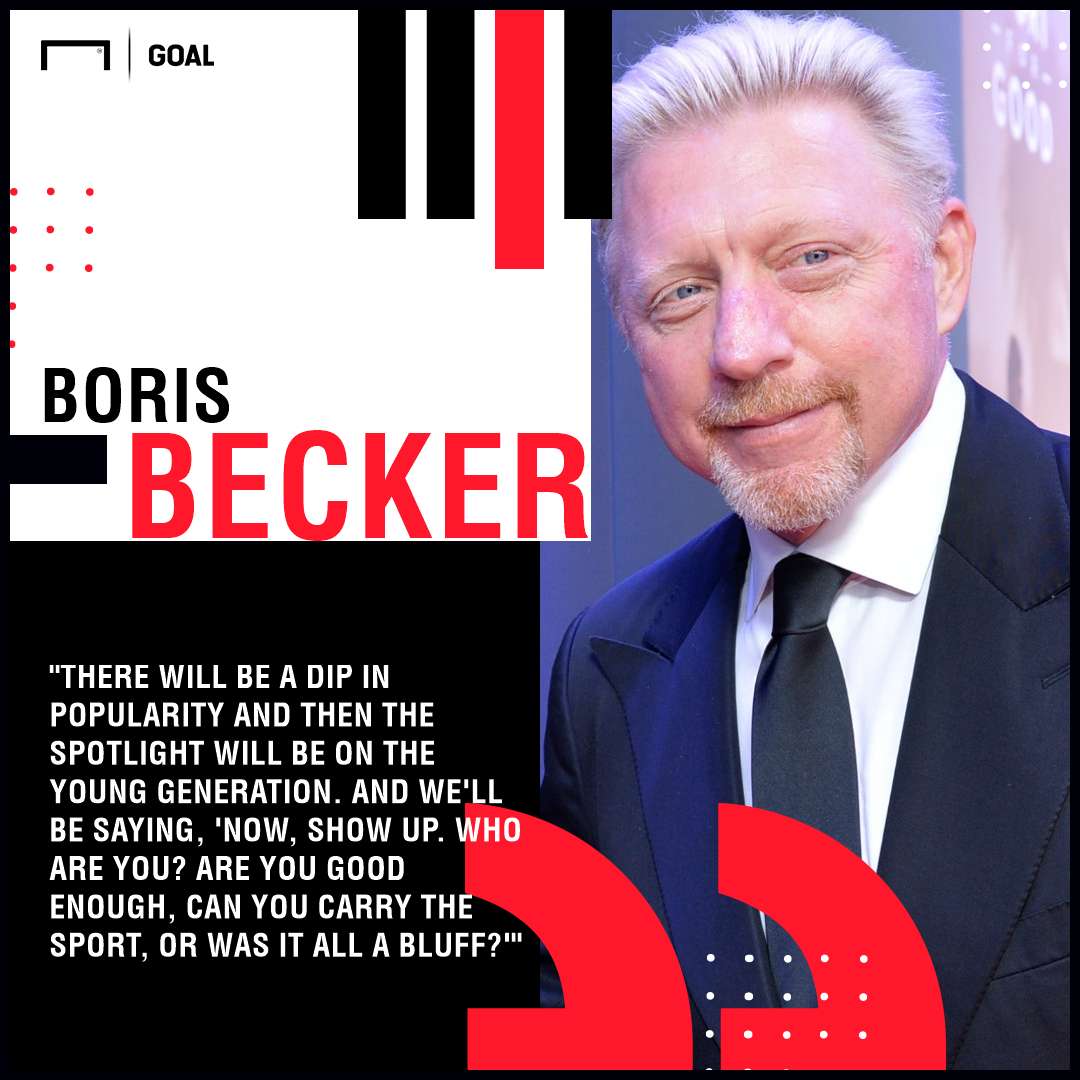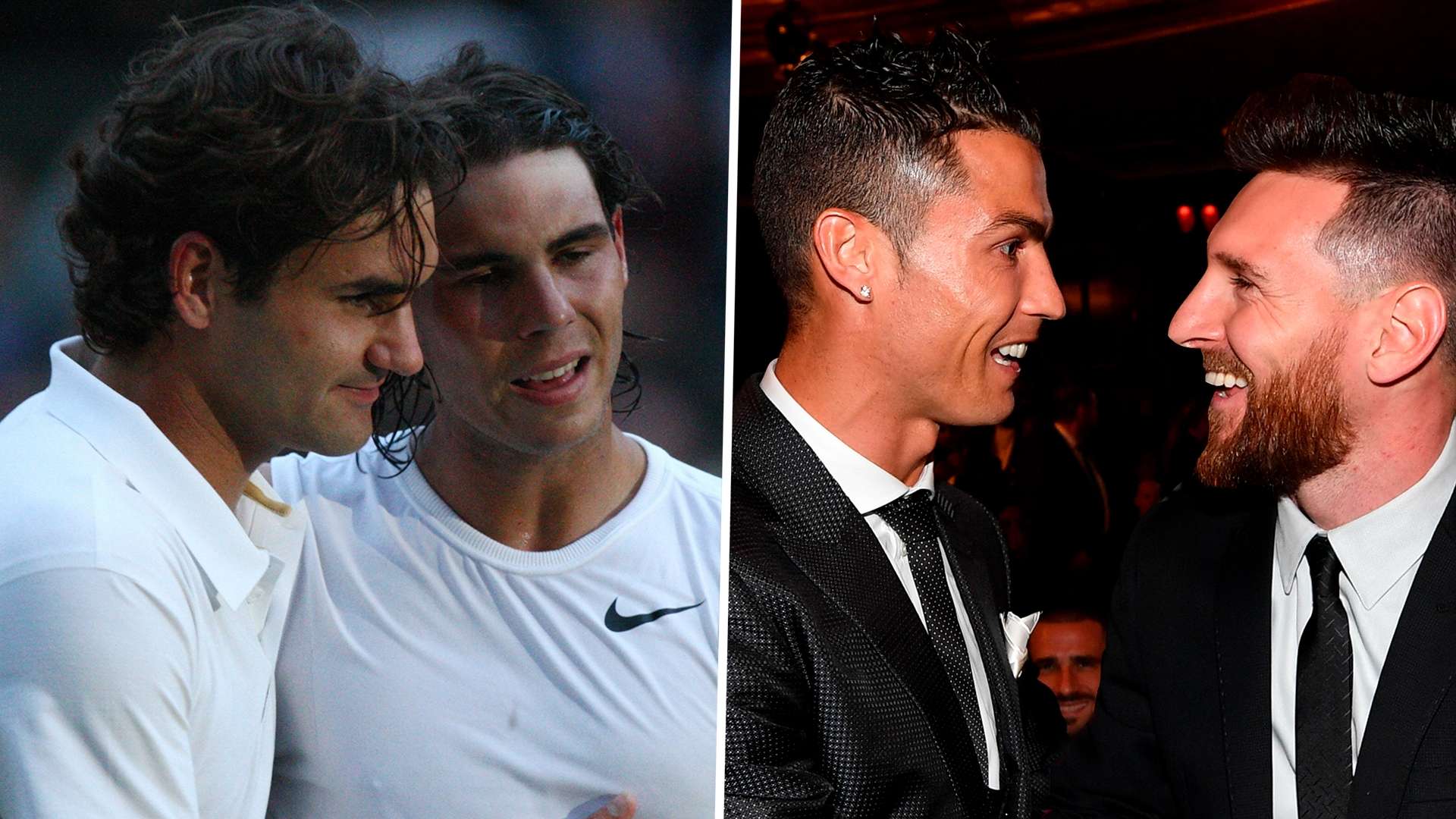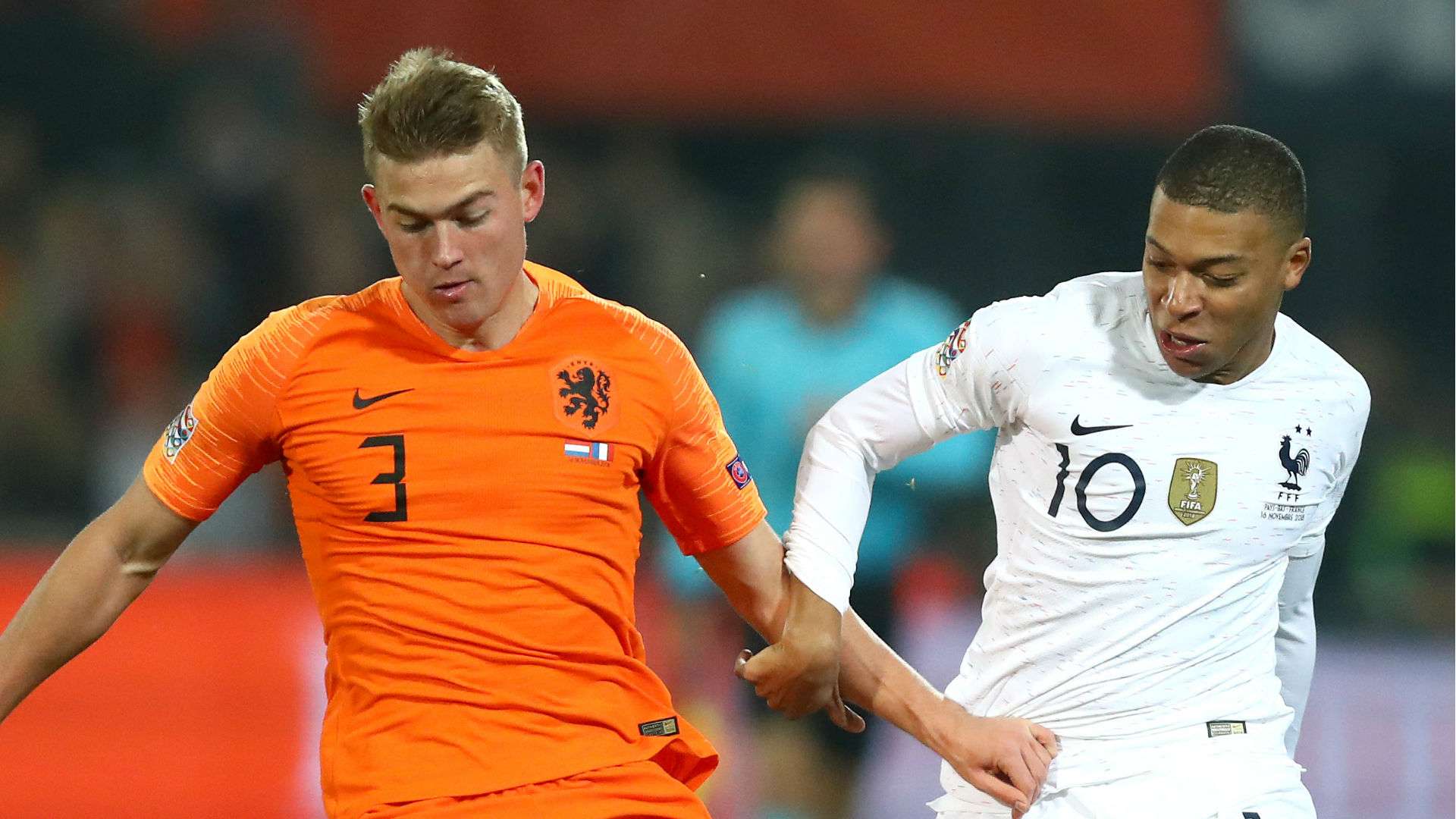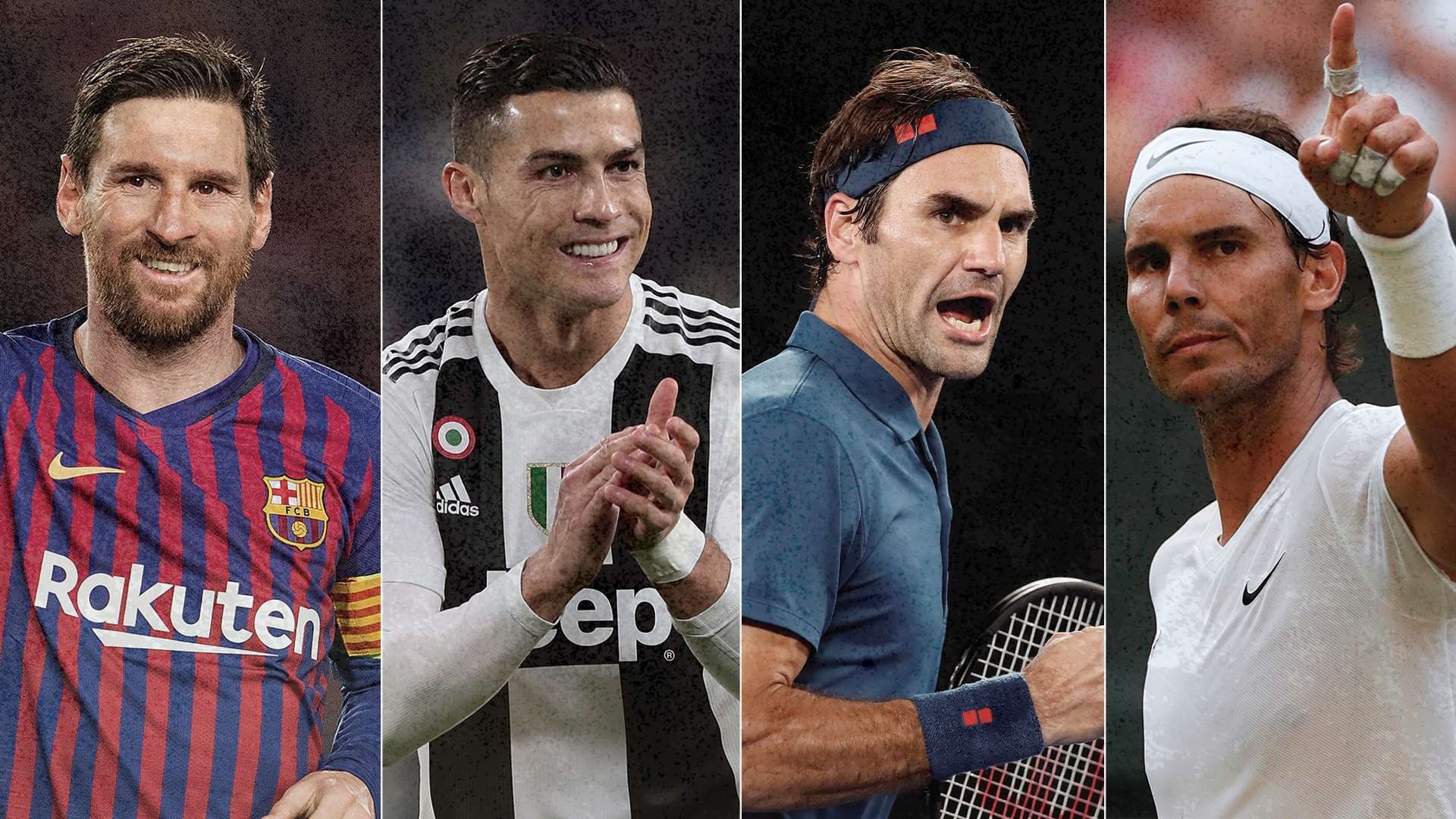After a 19-year-old Nick Kyrgios defeated world number one Rafael Nadal at the 2014 Wimbledon Championships, it appeared that tennis had a new superstar.
They met again at SW19 last week. The 33-year-old Nadal prevailed in four sets. It was an ill-tempered match, with the notoriously volatile Kyrgios deliberately trying to hit his Spanish opponent with the ball at one point, but nonetheless full of high-quality tennis.
"I want Nick to learn from that," former champion Boris Becker told the BBC afterwards. "He's such a fine tennis player, we want him in tennis.
"We maybe even need him in tennis once the big three are gone."
And that is the tennis community's big fear right now: once Nadal, Roger Federer (38 next month) and Novak Djokovic (32) – who have won the past 10 Grand Slams between them, and 53 in total – finally succumb to the ravages of time, what will become of the men's game?
Presently, there are no worthy successors out there. There is not even one male Grand Slam winner under the age of 30 right now.
On Friday afternoon, Nadal and Federer will meet in the Wimbledon semi-finals, with Djokovic facing the 31-year-old Roberto Bautista Agut in the other.
It is the most damning indictment yet of the younger generation's inability to compete at the very highest level and does not bode well for the future.
The tennis authorities and its money men are bracing themselves for a dramatic drop in earnings from the presently lucrative men's game, which has captured the imagination of the public thanks to the presence of the three all-time greats in the same era.
 Getty / Playing Surface
Getty / Playing Surface
Becker has already conceded, "There will be a dip in popularity and then the spotlight will be on the young generation.
"And we'll be saying, 'Now, show up. Who are you? Are you good enough, can you carry the sport, or was it all a bluff?'"
A similar question is presently being asked in certain circles within the footballing world: what happens when Lionel Messi and Cristiano Ronaldo retire?
The concern is understandable; the pair have dominated the game for over a decade, taking it to new heights on the field.
Ronaldo versus Messi has also been a godsend for the media; every article on their respective achievements sparks heated debate across the world and on social media.
With their talent, they have distorted reality, altered our perception of what is possible with their ridiculous goalscoring records. Even a player as great as Eden Hazard has admitted that he will never be able to post such numbers.
The worry, then, is whether everything after Messi and Ronaldo will feel anti-climactic, just as in tennis when the 'Big Three' are gone.
Will people lose interest? As Becker concedes, it's a very real danger in tennis. The men's game will, at the very least, take some time to recover – if at all.
Football, though, is in a far better position to cope with the loss of two of its greatest ever exponents, both from a sporting and financial perspective.
 Goal / Getty
Goal / Getty
By its very nature, its collective spirit, football has an edge. Granted, Ronaldo versus Messi has provoked an unprecedented level of animosity among those preoccupied with determining the pair's place in the pantheon of the greatest players of all time.
They have become so popular, such global phenomena that some fans now follow players rather than clubs. However, this is still a team sport. The international game is sustained by national pride while the club game is comprised of sides supported by passionate and loyal groups of fans.
The players may change – more regularly than ever before due to the Bosman ruling, buy-out clauses and an insane transfer market – but the love for one's team remains the same. That's even obvious in the old adage that 'No player is bigger than the club'.
Fans do not stop supporting a club because a star player leaves or retires. They do not even stop supporting their club if it is taken over by a person or a group of questionable moral integrity. The love for their club transcends all other concerns. It is an irrational but deep-rooted connection.
It is why fans will even support clubs through dark times. It is also why they will follow their club all over a country or continent, why they will pay extortionate amounts of money for replica kits or to TV companies to see all of their team's games.
It is why the Premier League is the richest domestic championship in the world. The English top flight hasn't had a Ballon d'Or winner since Ronaldo left in 2008 – it hasn’t even had a podium placing since then – but it has become a commercial colossus.
The Premier League is fuelled and sustained by the passion for the game among supporters of its clubs. Even the loss of superstars to Spain doesn't detract from its unique, global appeal, as its gargantuan overseas TV rights deals underline.
 Getty
Other footballing institutions such as Real Madrid, Barcelona, Juventus and Bayern Munich remain as popular as ever too.
Getty
Other footballing institutions such as Real Madrid, Barcelona, Juventus and Bayern Munich remain as popular as ever too.
Football's primary concern, then, is not what happens after Messi and Ronaldo – a new batch of superstars are already emerging, led by Kylian Mbappe, Vinicius Junior and Matthijs de Ligt – but what happens if the unchecked pursuit of wealth leads to a concentration of talent that threatens the competitiveness of the game, and the very existence of domestic leagues.
Talk of a Super League, or a closed-off Champions League, refuses to go away. The problem is that such a development could alienate and disillusion millions of fans. Their love for their club is limitless but maybe their patience is not. Maybe they will tire of being constantly exploited by their own clubs, TV companies, governing bodies, hoteliers and airline operators.
If they are priced out of the game, what will we be left with at club level? A flagship tournament that only a select group of participants can win – much like the Grand Slams in tennis.
Tennis' problem, though, is that it relies on individuals to sustain interest in the sport. It desperately needs new, compelling characters to emerge.
Football will never be short on stars; it is the most widely and easily played game on the planet. What's more, at the end of the day, it is all about the collective, on and off the field.
The only concern is what happens if you lose the support of the fans, not through a worrying lack of star quality - as in tennis - but because of an increasing amount of greed.
